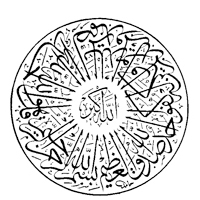
Islam and Muslims
The Arabic word "Islam" means peace, submission, and obedience. A Muslim is one who believes in God and strives for the total reorganization of one's life according to the guidance revealed by God in the Qur’an and preserved in the tradition of the prophet Muhammad (peace be upon him). The word "Allah" is the proper name of God in Arabic. It is a unique term and has no plural or gender-specific forms.
The Arabic word "Islam" means peace, submission, and obedience. A Muslim is one who believes in God and strives for the total reorganization of one's life according to the guidance revealed by God in the Qur’an and preserved in the tradition of the prophet Muhammad (peace be upon him). The word "Allah" is the proper name of God in Arabic. It is a unique term and has no plural or gender-specific forms.
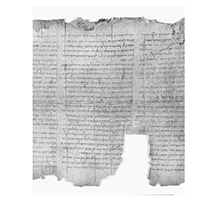
Continuity of the Message
Islam is not a new religion, but a re-presentation of the same message and guidance that God revealed to all of His prophets. In the Qur'an (3:3), we read:
Say, we believe in Allah and that which has been revealed to us, and that which was revealed to Abraham and Ishmael and Isaac and Jacob and the tribes and that which was given to Moses and Jesus and to other Prophets, from their Lord. We make no distinction between any of them, and to Him we submit.
The message revealed to the prophet Muhammad (peace be upon him) is Islam in its comprehensive, complete, and final form.
Islam is not a new religion, but a re-presentation of the same message and guidance that God revealed to all of His prophets. In the Qur'an (3:3), we read:
Say, we believe in Allah and that which has been revealed to us, and that which was revealed to Abraham and Ishmael and Isaac and Jacob and the tribes and that which was given to Moses and Jesus and to other Prophets, from their Lord. We make no distinction between any of them, and to Him we submit.
The message revealed to the prophet Muhammad (peace be upon him) is Islam in its comprehensive, complete, and final form.
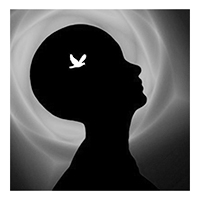
Man: The Free Agent
Man is the highest creation of God. He has the most potential of any part of God’s creation and is left relatively free in his will, actions, and choice. God has revealed the right path and the life of the prophet provides a perfect example. A Muslim believes that success and salvation lie in following both. Islam teaches the sanctity of the person and confers equal rights upon all regardless of race, gender, color, or other external differences. The law of God, as enunciated in the Qur'an and exemplified in the life of the prophet applies equally to the highest and the lowest, the prince and the peasant, the ruler and the ruled.
Man is the highest creation of God. He has the most potential of any part of God’s creation and is left relatively free in his will, actions, and choice. God has revealed the right path and the life of the prophet provides a perfect example. A Muslim believes that success and salvation lie in following both. Islam teaches the sanctity of the person and confers equal rights upon all regardless of race, gender, color, or other external differences. The law of God, as enunciated in the Qur'an and exemplified in the life of the prophet applies equally to the highest and the lowest, the prince and the peasant, the ruler and the ruled.
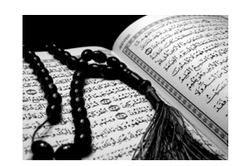
The Qur’an and Hadith
Muslims believe that the Qur'an is the last revealed word of God and the basic source of Islamic teachings and laws. It deals with the foundations of creeds, morality, the history of humanity, worship, knowledge, wisdom, the relationship of God to man and man to God, and all aspects of interpersonal relationships. Its comprehensive teachings are meant to be used to construct sound systems of social justice, economics, politics, legislation, jurisprudence, law, and international relations.
Muhammad (peace be upon him) could not read or write. This did not represent an obstacle, for the Qur'an was committed to memory and writing by his followers during his lifetime and under his supervision. The original and complete text of the Qur'an is available to everybody in Arabic, the language in which it was revealed. Numerous translations of the meaning of the Qur’an into many different languages are widely used. The hadith, a term which covers the literature dealing with the prophet's teachings, sayings, and actions, was reported and collected with great care by his devoted companions. Its main function is to explain and elaborate the Qur'anic verses.
Muslims believe that the Qur'an is the last revealed word of God and the basic source of Islamic teachings and laws. It deals with the foundations of creeds, morality, the history of humanity, worship, knowledge, wisdom, the relationship of God to man and man to God, and all aspects of interpersonal relationships. Its comprehensive teachings are meant to be used to construct sound systems of social justice, economics, politics, legislation, jurisprudence, law, and international relations.
Muhammad (peace be upon him) could not read or write. This did not represent an obstacle, for the Qur'an was committed to memory and writing by his followers during his lifetime and under his supervision. The original and complete text of the Qur'an is available to everybody in Arabic, the language in which it was revealed. Numerous translations of the meaning of the Qur’an into many different languages are widely used. The hadith, a term which covers the literature dealing with the prophet's teachings, sayings, and actions, was reported and collected with great care by his devoted companions. Its main function is to explain and elaborate the Qur'anic verses.
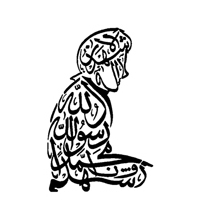
The Islamic Concept of Worship
Islam does not teach or accept mere ritualism, but rather emphasizes intention and action. To worship God is to know and to love Him, to obey His law in every aspect of life, to enjoin goodness and forbid wrong-doing and oppression, to practice charity and justice, and to serve Him by serving mankind. The Qur'an presents this concept in the following sublime manner:
It is not righteousness that you turn your faces to the East or the West, but righteous is he who believes in God and the Last Day and the Angels and the Books and the Prophets; and gives his wealth for love of Him to kinsfolk and to orphans and the needy and the wayfarer and to those who ask; and to set slaves free; and observes proper worship and pays the Zakat. And those who keep their treaty when they make one, and the patient in tribulation and adversity and time of stress, such are those who are sincere. Such are the God fearing. (Qur'an 2:177)
Islam does not teach or accept mere ritualism, but rather emphasizes intention and action. To worship God is to know and to love Him, to obey His law in every aspect of life, to enjoin goodness and forbid wrong-doing and oppression, to practice charity and justice, and to serve Him by serving mankind. The Qur'an presents this concept in the following sublime manner:
It is not righteousness that you turn your faces to the East or the West, but righteous is he who believes in God and the Last Day and the Angels and the Books and the Prophets; and gives his wealth for love of Him to kinsfolk and to orphans and the needy and the wayfarer and to those who ask; and to set slaves free; and observes proper worship and pays the Zakat. And those who keep their treaty when they make one, and the patient in tribulation and adversity and time of stress, such are those who are sincere. Such are the God fearing. (Qur'an 2:177)

The Islamic Way of Life
Islam provides specific guidelines for all people to follow in their daily lives. Its guidance is comprehensive and includes the social, economic, political, moral, and spiritual aspects of life. The Qur'an reminds man of the purpose of his life, of his duties and obligations toward himself, his family and relatives, his community, his fellow human beings, and his Creator. Man is given fundamental guidelines about a purposeful life and then confronted with the challenges of human existence so that he may put these high ideals into practice. In Islam, a person's life is regarded as a holistic and integrated unity and not a collection of fragmented and competitive parts. There are no separate "sacred" and "secular" realms, for all are united within the nature of the individual.
Islam provides specific guidelines for all people to follow in their daily lives. Its guidance is comprehensive and includes the social, economic, political, moral, and spiritual aspects of life. The Qur'an reminds man of the purpose of his life, of his duties and obligations toward himself, his family and relatives, his community, his fellow human beings, and his Creator. Man is given fundamental guidelines about a purposeful life and then confronted with the challenges of human existence so that he may put these high ideals into practice. In Islam, a person's life is regarded as a holistic and integrated unity and not a collection of fragmented and competitive parts. There are no separate "sacred" and "secular" realms, for all are united within the nature of the individual.
A Historical Perspective
Muhammad (peace be upon him) was born to a noble family in the year 570 AC in Makkah, a trading center located in the Arabian Peninsula. He received the first revelation when he was forty years old. As soon as he started calling his people to Islam, he and his followers were persecuted and forced to undergo severe hardship. After a while, God commanded him to migrate to the nearby city of Medina. Over the next twenty-three years he completed his mission as a prophet. He passed away at the age of 63. He led a perfect life, as he was the physical embodiment of all that the Qur'an teaches, and thus set an example for all human beings.
Muhammad (peace be upon him) was born to a noble family in the year 570 AC in Makkah, a trading center located in the Arabian Peninsula. He received the first revelation when he was forty years old. As soon as he started calling his people to Islam, he and his followers were persecuted and forced to undergo severe hardship. After a while, God commanded him to migrate to the nearby city of Medina. Over the next twenty-three years he completed his mission as a prophet. He passed away at the age of 63. He led a perfect life, as he was the physical embodiment of all that the Qur'an teaches, and thus set an example for all human beings.
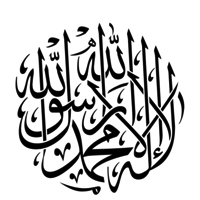
The Five Pillars of Islam
1. The Declaration of Faith: To bear witness that there is none worthy of worship except God and that Muhammad (peace be upon him) is His messenger to all humanity until the Day of Judgment. Muslims are obliged to follow the prophet’s exemplary life as a model.
2. Prayers: Daily prayers are offered five times a day as a duty toward God. They strengthen and enliven ones belief in God and inspire individuals to develop a higher morality. They purify the heart and help one to resist giving into temptation.
3. Fasting the Month of Ramadan: During Ramadan, Muslims abstain from food, drink, and all sexual activity from dawn to sunset. In addition, they must strive to abstain from evil intentions and desires. This communal fast seeks to instill within the individual feelings of love, sincerity, devotion, patience, unselfishness, and willpower as well as helping to develop a sound social conscience.
4. Zakat: An annual charitable payment of 2.5% of one’s net savings that has been in one’s possession for one year. This is a religious duty and purifies one’s money. It must be given to those who are poor and in need.
5. Pilgrimage to Makah: This must be performed at least once during one's lifetime, provided that one can afford it financially and withstand it physically.
Besides these pillars, every action done with the awareness that it fulfills the will of God is also considered an act of worship. Islam enjoins faith in the oneness and sovereignty of God, for this makes an individual aware of the meaningfulness of the universe and of his or her place in it. This belief frees one from all fears and superstitions by making him conscious of the presence of God and of man’s obligations toward Him. This faith must be expressed and tested in action; faith alone is not enough. Belief in one God requires that we look upon all human beings as one family under the universal omnipotence of God, who has created and nourishes all parts of His creation. Islam rejects the idea of a chosen people by stating clearly that one must have faith in God and complement that faith with good deeds in order to gain entrance to heaven. Thus, a direct relationship between God and each individual is established, a fact that also makes an intercessor unnecessary.
1. The Declaration of Faith: To bear witness that there is none worthy of worship except God and that Muhammad (peace be upon him) is His messenger to all humanity until the Day of Judgment. Muslims are obliged to follow the prophet’s exemplary life as a model.
2. Prayers: Daily prayers are offered five times a day as a duty toward God. They strengthen and enliven ones belief in God and inspire individuals to develop a higher morality. They purify the heart and help one to resist giving into temptation.
3. Fasting the Month of Ramadan: During Ramadan, Muslims abstain from food, drink, and all sexual activity from dawn to sunset. In addition, they must strive to abstain from evil intentions and desires. This communal fast seeks to instill within the individual feelings of love, sincerity, devotion, patience, unselfishness, and willpower as well as helping to develop a sound social conscience.
4. Zakat: An annual charitable payment of 2.5% of one’s net savings that has been in one’s possession for one year. This is a religious duty and purifies one’s money. It must be given to those who are poor and in need.
5. Pilgrimage to Makah: This must be performed at least once during one's lifetime, provided that one can afford it financially and withstand it physically.
Besides these pillars, every action done with the awareness that it fulfills the will of God is also considered an act of worship. Islam enjoins faith in the oneness and sovereignty of God, for this makes an individual aware of the meaningfulness of the universe and of his or her place in it. This belief frees one from all fears and superstitions by making him conscious of the presence of God and of man’s obligations toward Him. This faith must be expressed and tested in action; faith alone is not enough. Belief in one God requires that we look upon all human beings as one family under the universal omnipotence of God, who has created and nourishes all parts of His creation. Islam rejects the idea of a chosen people by stating clearly that one must have faith in God and complement that faith with good deeds in order to gain entrance to heaven. Thus, a direct relationship between God and each individual is established, a fact that also makes an intercessor unnecessary.
The Enduring Legacy of Muslim Scientists and Thinkers
A flourishing civilization that stretched from southern Spain to as far as China, early Muslim society endorsed rather than stifled scientific development. The pursuit of scientific knowledge was seen as complementary to, rather than in conflict with religious doctrine. From the seventh century onwards, Muslim scientists built on the ancient knowledge of the Egyptians, Greeks and Romans, making breakthroughs that paved the way for the Renaissance. Some of those who have made great contributions to civilization and society are listed below:
Jabir ibn Hayyan (721 - 815) is generally regarded as the founder of modern chemistry and invented many of the basic processes and apparatus still in use today such as liquefaction, crystallization, distillation, purification, oxidization, evaporation and filtration. Several technical Arabic terms introduced by Jabir, such as ‘alkali’, have found their way into various European languages and have become part of scientific vocabulary. Many historians state his importance to the history of chemistry as being equal to that of Robert Boyle and Antoine Lavoisier.
Al-Jazari (1136 - 1206) is best known for writing the Kitáb fí ma'rifat al-hiyal al-handasiyya (Book of Knowledge of Ingenious Mechanical Devices) in 1206, where he described fifty mechanical devices along with instructions on how to construct them. His designs incorporated numerous concepts he himself invented or refined, including the camshaft and crankshaft as well as valve and piston. The first combination lock and, incredibly, the first programmable humanoid robots are among the devices described in his book.
Abu al-Qasim (936 - 1013), also known in the West as Abulcasis, is regarded as the greatest surgeon to have appeared from the medieval Islamic World, and is described by some as the father of modern surgery. His thirty-chapter medical treatise, Kitab al-Tasrif, was later translated into Latin and served as the primary source of European medical knowledge for over five hundred years. Abulcasis introduced over two hundred surgical instruments, many of which had never been used before. Some of the procedures he pioneered, such as internal stitching methods that utilized dissolvable sutures, are still practiced in modern surgery.
Al-Khwarizmi (780 - 850) made numerous contributions to geography, astronomy, cartography and most significantly mathematics. The word “algebra” is derived from the title of his book ‘Compendious Book on Calculation by Completion and Balancing’, which presented the first systematic solution of linear and quadratic equations in Arabic. Hundreds of years later, when his works spread to Europe through twelfth century Latin translations, they had a profound impact on the advance of mathematics.
Ibn al-Haitham (965 - 1040) was a mathematician, astronomer and physicist most famous for his contributions to optics, physical science and the scientific method. He is also credited with being the first man to shift physics from a philosophical activity to an experimental one. Ibn al-Haitham was the first to discover that vision works by light entering the eye rather than leaving it. He applied his insight into the field of optics to invent the first pin-hole camera, derived from the Arabic word “qamara” for a dark or private room. The crater Alhazen on the Moon is named in his honor, as was the asteroid 59239 Alhazen.
Abbas ibn Firnas (810 - 887) was a poet, musician, astronomer and engineer best known for his attempts to construct a flying machine a thousand years before the Wright brothers. In one of his most famous attempts at flight, he jumped from the minaret of the Grand Mosque in Cordoba using a loose cloak stiffened with wooden struts. The cloak slowed his fall, creating what is thought to be the first parachute, and left him with only minor injuries. A crater on the moon is named in his honor.
Ibn Rushd (1126 - 1198), known in European literature as Averroes, was a master of philosophy, theology, jurisprudence, logic, psychology, politics, music theory and the sciences of medicine, astronomy, geography, mathematics, physics and celestial mechanics. Averroes is most famous for his translations and commentaries on the works of Aristotle and Plato, which had been largely forgotten in the West at the time.
A flourishing civilization that stretched from southern Spain to as far as China, early Muslim society endorsed rather than stifled scientific development. The pursuit of scientific knowledge was seen as complementary to, rather than in conflict with religious doctrine. From the seventh century onwards, Muslim scientists built on the ancient knowledge of the Egyptians, Greeks and Romans, making breakthroughs that paved the way for the Renaissance. Some of those who have made great contributions to civilization and society are listed below:
Jabir ibn Hayyan (721 - 815) is generally regarded as the founder of modern chemistry and invented many of the basic processes and apparatus still in use today such as liquefaction, crystallization, distillation, purification, oxidization, evaporation and filtration. Several technical Arabic terms introduced by Jabir, such as ‘alkali’, have found their way into various European languages and have become part of scientific vocabulary. Many historians state his importance to the history of chemistry as being equal to that of Robert Boyle and Antoine Lavoisier.
Al-Jazari (1136 - 1206) is best known for writing the Kitáb fí ma'rifat al-hiyal al-handasiyya (Book of Knowledge of Ingenious Mechanical Devices) in 1206, where he described fifty mechanical devices along with instructions on how to construct them. His designs incorporated numerous concepts he himself invented or refined, including the camshaft and crankshaft as well as valve and piston. The first combination lock and, incredibly, the first programmable humanoid robots are among the devices described in his book.
Abu al-Qasim (936 - 1013), also known in the West as Abulcasis, is regarded as the greatest surgeon to have appeared from the medieval Islamic World, and is described by some as the father of modern surgery. His thirty-chapter medical treatise, Kitab al-Tasrif, was later translated into Latin and served as the primary source of European medical knowledge for over five hundred years. Abulcasis introduced over two hundred surgical instruments, many of which had never been used before. Some of the procedures he pioneered, such as internal stitching methods that utilized dissolvable sutures, are still practiced in modern surgery.
Al-Khwarizmi (780 - 850) made numerous contributions to geography, astronomy, cartography and most significantly mathematics. The word “algebra” is derived from the title of his book ‘Compendious Book on Calculation by Completion and Balancing’, which presented the first systematic solution of linear and quadratic equations in Arabic. Hundreds of years later, when his works spread to Europe through twelfth century Latin translations, they had a profound impact on the advance of mathematics.
Ibn al-Haitham (965 - 1040) was a mathematician, astronomer and physicist most famous for his contributions to optics, physical science and the scientific method. He is also credited with being the first man to shift physics from a philosophical activity to an experimental one. Ibn al-Haitham was the first to discover that vision works by light entering the eye rather than leaving it. He applied his insight into the field of optics to invent the first pin-hole camera, derived from the Arabic word “qamara” for a dark or private room. The crater Alhazen on the Moon is named in his honor, as was the asteroid 59239 Alhazen.
Abbas ibn Firnas (810 - 887) was a poet, musician, astronomer and engineer best known for his attempts to construct a flying machine a thousand years before the Wright brothers. In one of his most famous attempts at flight, he jumped from the minaret of the Grand Mosque in Cordoba using a loose cloak stiffened with wooden struts. The cloak slowed his fall, creating what is thought to be the first parachute, and left him with only minor injuries. A crater on the moon is named in his honor.
Ibn Rushd (1126 - 1198), known in European literature as Averroes, was a master of philosophy, theology, jurisprudence, logic, psychology, politics, music theory and the sciences of medicine, astronomy, geography, mathematics, physics and celestial mechanics. Averroes is most famous for his translations and commentaries on the works of Aristotle and Plato, which had been largely forgotten in the West at the time.
Contemporary Muslim American Cultural Icons
The Muslim world today is not a geographically or ethnically homogeneous group. Muslims number between 1.2 and 1.6 billion people, or roughly one-fifth of mankind, and are spread across many different nations and ethnic groups. American Muslims number approximately 7 million and make up one of the most racially diverse religious groups in the United States. Many of them are considered icons of American culture. A few famous personalities are listed below:
Muhammad Ali
- Former boxer and three-time World Heavyweight Champion
- The first and only boxer to win the lineal heavyweight championship three times
- Awarded the Presidential Medal of Freedom by President George W Bush
Kareem Abdul Jabbar
- Former basketball player, coach, actor, and author
- The all-time leading NBA scorer
Shaquille O’Neal
- Former basketball player
- One of only three players to win NBA MVP, All-Star MVP and Finals MVP awards in the same year
Hakeem Abdul Olajuwon
- Former basketball player
- The only player to win the NBA MVP, Defensive Player, and Finals MVP awards in the same season
- Inducted into the Basketball Hall of Fame as a member of the class of 2008
Dave Chappelle
- Comedian, screenwriter, television/film producer, actor, and artist
Busta Rhymes
- Rapper, producer and actor
Everlast
- Grammy Award-winning rapper and songwriter
- Known for his solo hit "What It's like" and as the front man for rap group House of Pain
Jermaine Jackson
- Singer, bassist, composer, and a member of The Jackson 5
- Older brother of American pop stars Michael Jackson and Janet Jackson and occasional film director
Mos Def
- Actor and MC
Lupe Fiasco
- Rapper and MC
Fazlur Khan
- Architect and structural engineer of the Willis (Sears) Tower and John Hancock Center
- A central figure behind the "Second Chicago School" of architecture
- Regarded as the "father of tubular design for high-rises"
The Muslim world today is not a geographically or ethnically homogeneous group. Muslims number between 1.2 and 1.6 billion people, or roughly one-fifth of mankind, and are spread across many different nations and ethnic groups. American Muslims number approximately 7 million and make up one of the most racially diverse religious groups in the United States. Many of them are considered icons of American culture. A few famous personalities are listed below:
Muhammad Ali
- Former boxer and three-time World Heavyweight Champion
- The first and only boxer to win the lineal heavyweight championship three times
- Awarded the Presidential Medal of Freedom by President George W Bush
Kareem Abdul Jabbar
- Former basketball player, coach, actor, and author
- The all-time leading NBA scorer
Shaquille O’Neal
- Former basketball player
- One of only three players to win NBA MVP, All-Star MVP and Finals MVP awards in the same year
Hakeem Abdul Olajuwon
- Former basketball player
- The only player to win the NBA MVP, Defensive Player, and Finals MVP awards in the same season
- Inducted into the Basketball Hall of Fame as a member of the class of 2008
Dave Chappelle
- Comedian, screenwriter, television/film producer, actor, and artist
Busta Rhymes
- Rapper, producer and actor
Everlast
- Grammy Award-winning rapper and songwriter
- Known for his solo hit "What It's like" and as the front man for rap group House of Pain
Jermaine Jackson
- Singer, bassist, composer, and a member of The Jackson 5
- Older brother of American pop stars Michael Jackson and Janet Jackson and occasional film director
Mos Def
- Actor and MC
Lupe Fiasco
- Rapper and MC
Fazlur Khan
- Architect and structural engineer of the Willis (Sears) Tower and John Hancock Center
- A central figure behind the "Second Chicago School" of architecture
- Regarded as the "father of tubular design for high-rises"



